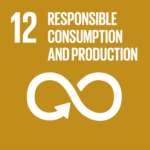BioUPGRADE -project: Using proteins to upgrade biomass for biomaterials engineering
Blog - Published 9.1.2024
When we think about biomass, the first thing that usually comes to mind is how we can best break it down and use it as an energy source. While generating renewable energy sources is important, so is utilizing previously unused or underutilized biomass sources for new innovations in the field of biomaterials. As the name suggests, the BioUPGRADE project aims to do exactly that.
BioUPGRADE is a European Union’s 2020 Horizon program funded international research project aiming to sustainably valorize structural biopolymers already present in nature. These include cellulose, hemicelluloses and chitin, which are abundantly present on Earth. On our journey of moving away from petroleum-based sources of fuel, it is important that we not only focus on degradation of these resources, but also find new, innovative ways of using and upgrading largely unutilized natural polysaccharides. The BioUPGRADE team asks the question, what if instead of breaking down, we maximize the untapped potential of these materials and use biological resources as efficiently as we possibly can? To do so, BioUPGRADE uses biocatalytic processes to exploit surface-acting proteins and enzymes as well as assembly of tailored biopolymers to create breakthroughs in bio-based materials engineering.
As of today, biocatalytic pathways of fiber valorization are not often used in industrial processes. However, biological processes that transform wood and other biomass are abundant in nature. The key in these processes is a group of proteins called enzymes. Enzymes catalyze changes in their substrate without themselves being changed in the process. Given their exquisite selectivity, ability to catalyze reactions in water and under ambient conditions, and option to tailor their performance through genetic engineering, enzymes can offer efficient and sustainable alternative to synthetic, chemical catalytic treatments.
One area of focus of the BioUPGRADE project is a group of non-lytic proteins called expansins, which introduce mechanical changes on biomass without breaking them down. This offers pathways into further modifications that are important, for example, in cellulose fiber dissolution for textile manufacturing. In addition, the team is bioengineering new enzymes that chemically functionalize biomass to permit their broader use in packaging materials, conductive inks, and healthcare products.
The BioUPGRADE international team comprises four major institutions from across Europe: Aalto University and UPM in Finland, KTH in Sweden, and CIC bioGUNE in Spain. The teams assembles expertise in bioscience, computational science, and material science to establish new innovations in the field of biotechnology. To learn more, watch the video below and hear straight from the team leaders and trainees of their work in the BioUPGRADE project.
Agenda2030
The BioUPGRADE project supports the following UN’s sustainable development goals
- SDG 12 Responsible Consumption and Production: The project emphasizes the sustainable upgrading of structural biopolymers already present in nature, promoting responsible use of biological resources as we move away from petroleum-based sources.
- SDG 13 Climate Action: By exploring ways to valorize underutilized natural polysaccharides, the project contributes to climate action by promoting sustainable and environmentally friendly alternatives to traditional materials and energy sources.


